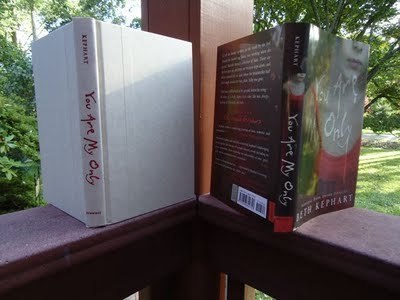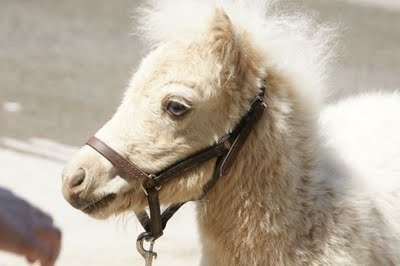Beth Kephart's Blog, page 226
September 1, 2011
Kay's Bookshelf Reviews You Are My Only
Published on September 01, 2011 15:14
You Are My Only, an early blog review
 I am not, as most of you know, in the habit of googling my own name. And so a note I just received alerting me to this beautiful review of You Are My Only made me happy—and came at just the right time. Thank you so very much, Books, Thoughts and a Few Adventures for these words today.
I am not, as most of you know, in the habit of googling my own name. And so a note I just received alerting me to this beautiful review of You Are My Only made me happy—and came at just the right time. Thank you so very much, Books, Thoughts and a Few Adventures for these words today.



Published on September 01, 2011 06:48
August 31, 2011
Thanking you for being there, in the nick of time
 "Look," my brother said. "Catch her now, with the light." And my camera wasn't ready and maybe I wasn't either, but I snapped the picture in the nick of time. The girl is smiling. Her kite is aloft.
"Look," my brother said. "Catch her now, with the light." And my camera wasn't ready and maybe I wasn't either, but I snapped the picture in the nick of time. The girl is smiling. Her kite is aloft.Early this morning I finished writing the first draft of a book and I was happy—writing makes me feel that way. By noon, however, my mood had turned. I'd received some news. I was deeply distressed. I felt something break within.
I did something I so rarely do; I reached out to my friends. I said, What can I do? I said, Can you help me? And goodness flooded in. This, then, is the lesson of this day—the thing that I will remember. Not the heartbreak—not that—but the goodness in its wake. The kite that still soars. The girl that still smiles. The blue sky that filters in after the storm.
I am in your debt.




Published on August 31, 2011 18:07
Dr. Radway's Sarsaparilla Resolvent (and other fun things)
 After playing a much-needed bit of hooky at the Jersey shore yesterday (not that Jersey Shore, believe me), I came home, woke early, and wrote the final pages of Dr. Radway's Sarsaparilla Resolvent, the Dangerous Neighbors prequel. I rarely write with a book's closing pages in mind. This time, always, I knew where I was headed. I've printed the whole thing out now and will take it to a quiet place to read. But since I have reworked all thirty-three chapters (save the last one) at least a dozen times each, I think I'm in a pretty good place.
After playing a much-needed bit of hooky at the Jersey shore yesterday (not that Jersey Shore, believe me), I came home, woke early, and wrote the final pages of Dr. Radway's Sarsaparilla Resolvent, the Dangerous Neighbors prequel. I rarely write with a book's closing pages in mind. This time, always, I knew where I was headed. I've printed the whole thing out now and will take it to a quiet place to read. But since I have reworked all thirty-three chapters (save the last one) at least a dozen times each, I think I'm in a pretty good place.This, of course, is William's story—that boy who rescues animal for a living and, in 1876, in the pages of Dangerous Neighbors, befriends Katherine during one terrifying day at the Centennial. The year this time in 1871, and a primary scene takes place in the room above.
I have loved every single second of researching and writing this story. I cannot wait to share it with the world.
In the meantime, I've got corporate work to do and, thanks to the number of schools that seem to be assigning my Juarez novel, The Heart Is Not a Size, to their students, I'm about to put together a teacher's guide for that book. It is extraordinary—and extremely reassuring—that books do find their way in this world, even if we're not entirely sure how to help them get there.




Published on August 31, 2011 08:28
August 30, 2011
My famous brother juggling (a 21 second beach video)
(I come from a tres talented family. obviously.)(thanks to J, D, and O for a memorable day in Stone Harbor)








Published on August 30, 2011 19:59
August 29, 2011
Small Damages: The Jersey Shore Excerpt
 Tomorrow morning, I'll take care of a little business, wrap up the final chapter of my Dangerous Neighbors prequel, and then pick up my father for a Jersey shore adventure; we're going for the day to visit my brother and his family. It's a spur of the moment thing, but not really—my family has been visiting Stone Harbor for as long as I can remember. Here, in fact, is my brother, sister, and me. I don't know why, but I always loved that red suit and its fashionable collar.
Tomorrow morning, I'll take care of a little business, wrap up the final chapter of my Dangerous Neighbors prequel, and then pick up my father for a Jersey shore adventure; we're going for the day to visit my brother and his family. It's a spur of the moment thing, but not really—my family has been visiting Stone Harbor for as long as I can remember. Here, in fact, is my brother, sister, and me. I don't know why, but I always loved that red suit and its fashionable collar.I have spoken about Small Damages, due out from the incredibly terrific Tamra Tuller of Philomel next summer, as my Seville novel, and that is true; much of it takes place within a cortijo outside the city, and memories of the Spanish Civil War are resonant and haunting. But Small Damages is built on flashbacks, too, some of which reach back to a certain Philadelphia suburb and the nearby shore.
I am thinking about tomorrow as I post this excerpt, then. I am thinking about all the memories I have that led me toward this passage:
Ellie is wearing her same orange bikini from the ninth grade. She's slicing the beach air with her skinny bones. She's the first thing you see, across the wooden planks, over the sand dunes.
You don't see ocean or umbrellas or sock kites let up into the sky. You see Ellie—the dark black fringe of her hair, the Popsicle orange of her bikini, the bright Barney flip-flops on her feet. You see the spinning disk of the flopped gold hat she's been wearing since she was twelve. You see Ellie, beach artist, carving out her sculpture of the day, finding her spot at the high-tide line, where the sand goes from wet dark to light. She tests her mix, crumbles fistfuls, gets the sand all clumped together. "Oh, my precious mortar sand," she says, and she shovels that sand out and piles it high, digging trenches all around so that she can win against the sea, and making you guess, making you wait, and you go out into the ocean and sleep on your raft, or you play horseshoes and Frisbee or toss, or you fall asleep beneath the tent of a paperback book, and all along, Ellie is working on her sculpture, like it is the most important thing there ever was, like she will never ever have to decide what to do with a baby she didn't expect to have too soon.
"I need clamshells," Ellie says. "I need those little twiggy sticks." Whatever. Ellie is a sand sculpture rock star—carving out sand cars you can practically drive, packing out mini roller coasters, tattooing the beach with these funny cartoon faces, and going at it all afternoon. You can never leave the beach until Ellie is done. You can never see what is coming. You will never know where her ideas came from, or how she figures out the physics of the sand.




Published on August 29, 2011 17:54
You Are My Only, the book, arrives
 It flew through hurricane-force winds to get here, and I didn't see it coming. But You Are My Only (Laura Geringer Books: Egmont USA) is a real book now, beautifully encased and designed. It will be out on shelves on October 25th, but can be found for pre-order at Amazon and other e-retailers between now and then.
It flew through hurricane-force winds to get here, and I didn't see it coming. But You Are My Only (Laura Geringer Books: Egmont USA) is a real book now, beautifully encased and designed. It will be out on shelves on October 25th, but can be found for pre-order at Amazon and other e-retailers between now and then. 



Published on August 29, 2011 14:36
Book Blogger Appreciation Week: An Honor and, yes, an Appreciation
 Now that the Book Bloggers Appreciation Week long-list nominees have been announced, I want to thank the organizers of this event and the cast of nominators for placing Beth Kephart Books into consideration for best Published Author Blog alongside the blogs of Maggie Stiefvater, Veronica Roth, and Beth Revis. I am honored to share this platform with them. I also celebrate those who have been nominated in categories ranging from Best Audiobook Blog and Classics Book Blog to Kidlit Book Blog, Historical Fiction Book Blog, Literary Fiction Book Blog, and Young Adult Book Blog, among others. I encourage you all to take a look at the lists and to visit those blogs to which you have not already traveled.
Now that the Book Bloggers Appreciation Week long-list nominees have been announced, I want to thank the organizers of this event and the cast of nominators for placing Beth Kephart Books into consideration for best Published Author Blog alongside the blogs of Maggie Stiefvater, Veronica Roth, and Beth Revis. I am honored to share this platform with them. I also celebrate those who have been nominated in categories ranging from Best Audiobook Blog and Classics Book Blog to Kidlit Book Blog, Historical Fiction Book Blog, Literary Fiction Book Blog, and Young Adult Book Blog, among others. I encourage you all to take a look at the lists and to visit those blogs to which you have not already traveled.Those bright lights who organize this event do it for no other reason than to celebrate those who are passionate about reading and books. Where, I ask you, would we be without them?




Published on August 29, 2011 10:00
August 27, 2011
The Buddha in the Attic/Julie Otsuka: Reflections
 Hurricane Irene has now become a pelting force. I have been reading Julie Otsuka's The Buddha in the Attic in its dark and fearsome shadow. I'm not entirely sure how long I will have power, and there is much I'd like to say. But for now, and briefly, I want to share this with those of you in the still-electrified regions of our country: Julie Otsuka (the author of the contemporary classic (and one of my favorite books) When the Emperor was Divine) writes important books. Deeply penetrating, remarkably researched, wholly intimate miniature novels that aren't novels at all, perhaps, but something else—urgent evocations, perhaps, or searing incantations.
Hurricane Irene has now become a pelting force. I have been reading Julie Otsuka's The Buddha in the Attic in its dark and fearsome shadow. I'm not entirely sure how long I will have power, and there is much I'd like to say. But for now, and briefly, I want to share this with those of you in the still-electrified regions of our country: Julie Otsuka (the author of the contemporary classic (and one of my favorite books) When the Emperor was Divine) writes important books. Deeply penetrating, remarkably researched, wholly intimate miniature novels that aren't novels at all, perhaps, but something else—urgent evocations, perhaps, or searing incantations.Otsuka's focus, in Buddha, is on the young Japanese women who arrived by boat shortly after World War I to meet the men they had agreed to marry and to begin lives that would never be the lives that they'd imagined. They are taken, many of them roughly, to bed. They are put to work in farms or in the houses of the rich. They bear children and they lose children and they have favorites among their children, and their children will grow up with an American sound and smell, with attitude and shame. When the next war begins, these lives will be savaged once again by the American paranoia that led to the building of the Japanese intern camps.
I keep saying "they" and "these" because this is a story told in the third-person plural. A we came, we did, we loved, we lost, we hoped, we were taken from tale. That may sound like a peculiar story-telling choice, and indeed, it does, in places, box Otsuka in, forcing a sameness of sentence superstructure, as well as a sameness of variation from that superstructure. "On the boat we were mostly virgins," she begins, continuing:
We had long black hair and flat wide feet and we were not very tall. Some of us had eaten nothing but rice gruel as young girls and had slightly bowed legs, and some of us were only fourteen years old and were still young girls ourselves.Can you sustain a book with a third-person plural? Can you make it matter? In this slender book, Otsuka does by offering a suite of detail-saturated, devastating chapters with titles like "Come, Japanese!," "First Night," "Whites," "Babies," and "Traitors." Only the last chapter, "A Disappearance," gives voice to the Americans who wonder, in the wake of the Japanese evictions, where their neighbors, school mates, grocery store clerks, maids have gone.
The rain is a sleeting as I type this. The news warns of apocalyptic floods, of communities remade, of evacuations; it tells of children already lost to the thunder crash of trees. I read Buddha against this backdrop. I was moved toward a deep sadness for lives long ago lost.




Published on August 27, 2011 15:18
Here, now
Published on August 27, 2011 06:07









